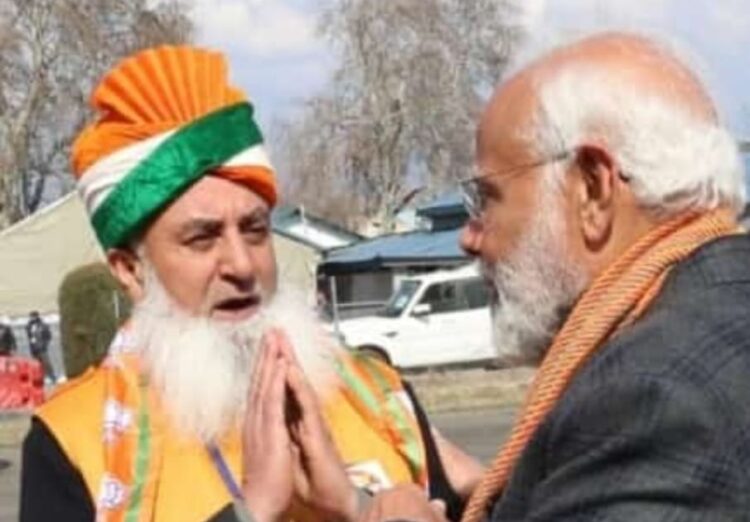In 1992, during the peak of armed insurgency in Kashmir, an unexpected encounter occurred that would eventually lead to a transformative journey for both a young Kashmiri youth and a burgeoning leader in Bharatiya politics. When President Murli Manohar Joshi and Narendra Modi, then a rising figure within the BJP, bravely hoisted the Indian national flag at Lalchowk in Srinagar on Republic Day, it sparked curiosity in 26-year-old Mohammad Ashraf Hajam, known as ‘Azad’, who was associated with a militant outfit at the time. Little did he know that this encounter would set the stage for a remarkable alliance aimed at fostering peace and development in the troubled region.
Azad’s initial intrigue led him to establish a relationship with the BJP leaders, culminating in a meeting with Atal Bihari Vajpayee in Delhi. However, it was Modi’s arrival in Srinagar that truly solidified their bond. Despite their divergent backgrounds, Modi, masquerading as a human rights activist, embarked on a journey with Azad, venturing into the heart of Kashmir without security. Together, they traversed villages, engaging with locals on a myriad of issues, documenting their aspirations and concerns.
Modi’s genuine interest in understanding the ground realities of Kashmir and Azad’s eventual alignment with the BJP marked the beginning of a collaborative effort to bring about positive change. Over the years, Azad’s unwavering commitment to the party and his community, coupled with Modi’s leadership at the helm of the nation, laid the groundwork for impactful initiatives aimed at addressing socio-economic disparities and fostering peace in the region.
Fast forward to present day, and Azad, now 60 years old, stands alongside Prime Minister Modi at Srinagar airport once again. Their reunion, filled with reminiscence and camaraderie, underscores the enduring bond forged through shared experiences and a shared vision for a prosperous Kashmir. As Modi affectionately acknowledges Azad’s contributions, it becomes evident that their collaborative efforts have transcended political boundaries, leaving an indelible mark on the landscape of Bharatiya politics and the aspirations of Kashmiri people.
At a time when divisiveness and conflict often dominate the narrative, the story of Modi and Azad serves as a beacon of hope, highlighting the transformative power of dialogue, understanding, and collaboration in fostering peace and prosperity for all. In their journey from unlikely allies to steadfast partners in progress, they exemplify the potential for positive change when individuals rise above differences to work towards a common goal.

















Comments